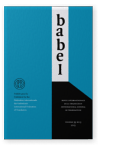Vol. 59:3 (2013) ► pp.360–380
Seeking the golden mean:
Arthur Waley’s English translation of the Xi you ji
If one is to draw up, in order of usage frequency, a list of words whose authority has most often been invoked in translation studies during the past decades, <i>domestication</i> and <i>foreignizing</i> will most likely appear at the top. When they were first coined or given their new <i>signifiā</i>, these words may well have been applicable to the approaches or strategies used by certain translators in certain periods, certain cultures, or certain parts of the world. One should not, however, be misled into thinking that they are applicable to all translators or all translations, for, apart from the “domesticating” and “foreignizing” approaches or strategies, there is a wide range of other possibilities into which the vast majority of translations can fall, and to which the concepts of “domestication” and “foreignizing” do not apply.<p>This paper looks at <i>Monkey</i>, Arthur Waley’s English translation of the classical Chinese novel Xi you ji (Journey to the West), and shows how the above-mentioned concepts are not universally relevant, and how the translator, as an empathic and creative mediator, moves freely between the source language / culture and the target language / culture to seek the golden mean with respect to the effectiveness of the translation in artistic and communicative terms, neither “domesticating” nor “foreignizing.”<p>
Cited by (4)
Cited by 4 other publications
This list is based on CrossRef data as of 30 june 2024. Please note that it may not be complete. Sources presented here have been supplied by the respective publishers. Any errors therein should be reported to them.
